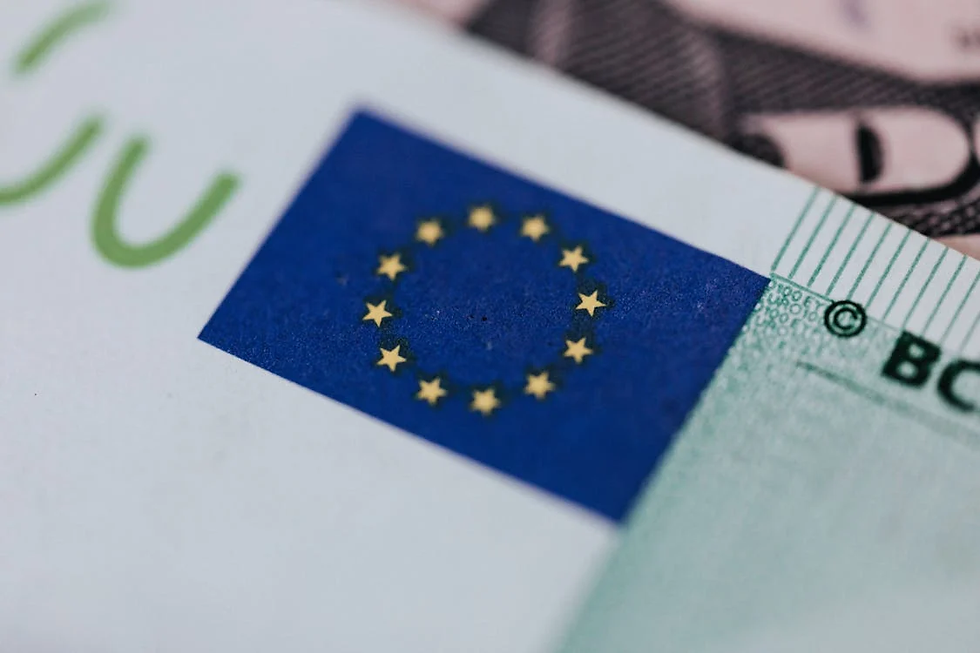The EU: A Union in Crisis?
- Dylan Davies

- Oct 1, 2021
- 4 min read
Updated: Dec 23, 2024
The European Union has been a well known political and economic entity in Europe and around the world since its creation almost 80 years ago. Since then, the union has faced its fair share of challenges: from rebuilding Europe after World War 2 to Brexit. Now, it faces a new wave of crises in the form of its own member states.
The idea of a union for Europe was first thought of after the second world war, with European integration seen as a way to combat extreme nationalism. It gained support from leaders such as Winston Churchill who called for a “United States of Europe” in a 1946 speech in Zurich. In 1948, the early stages of a union were formed through the foundation of European Movement International. The next major step in the formation of the union came in 1957 with the Treaty of Rome, which saw the governments of Belgium, France, Italy, Luxembourg, The Netherlands and West Germany create the European Economic Community.

Following a referendum in 1973, the community expanded to include Denmark, The United Kingdom and Ireland. Less than ten years later, the first European Parliament elections were held, marking the beginning of the union’s political significance. The union enlarged again in the ’80s and ’90s, as countries like Greece and Spain joined the community - alongside a unified Germany after the fall of the eastern bloc. Despite its developing influence throughout the 20th century, the EU wasn’t officially formed until 1993, via the Maastricht treaty. The bloc grew further to include the Scandinavian states of Finland and Sweden, with Austria following suit in 1995.
In 2002, the Euro was born, replacing the currencies of 12 member states, ushering in the creation of the Eurozone; with it, the further integration of Europe’s economies. Today, the Euro has been adopted by 19 member states, the partially recognised nation of Kosovo, and Europe’s micronations including Vatican City and San Marino, ultimately making it the 7th strongest currency in the world.
Despite Europe’s historical success, it now faces threats from its own member states, namely Hungary and Poland. Viktor Orban has been prime minister of Hungary since 2010, following a previous stint as leader from 1998 to 2002. During his first premiership, Orban governed democratically, joining NATO in 1999 and tackling Hungary’s rising debt.
However, since his re-election in 2010, many international observers consider Hungary to be enduring democratic backsliding due to Orban’s curtailing of press freedom and the erosion of judicial independence. Orban has therefore violated Article 2 of the European Union, which states that “human dignity, freedom, democracy, equality, the rule of law and respect for human rights” are founding values of the EU. This ultimately led to Dutch Greens MEP, Judith Sargentini, writing a motion to enact Article 7, which could potentially strip Hungary of its EU voting rights. However, it is unlikely that a “serious breach of EU values” would be declared due to the fact 80% of member states would be required to support the decision. Poland has stated that it would veto any bill to restrict Hungary, and remain supportive of Hungary.
Poland also poses a serious threat to the union. Since the election of Andrzej Duda and his Law And Justice (PiS) party in 2015, Duda has continuously restricted the rights of LGBT+ citizens and created constitutional crises over judges selected by the Sejm (Poland’s Lower House of government). Poland, often dubbed as one of Europe’s most promising democracies following the collapse of the eastern bloc, has been accused by many of reverting back to authoritarianism under PiS leading to leaders in Brussels raising concerns over the health of its democracy. One of their first steps was packing the courts and broadcasters full of loyalists to the government, and creating LGBT free zones which openly ban and discriminate against LGBT people. These actions ultimately led to the EU withholding up to $150 million in funding, but many still ask is this enough?
Although the future of the EU may be unclear, the union has not been deterred from seeking union expansion to other countries on the continent. Five countries are classed as candidate countries to the EU, with those being Albania, North Macedonia, Montenegro, Serbia, and Turkey: all of which have formally applied for membership. Negotiations are ongoing for their memberships with the union drafting membership frameworks. The union is also looking to the Balkan region, citing that Bosnia & Herzegovina as well as the partially recognised state of Kosovo are potential candidates. With EU President Ursula von der Leyen completing a tour of the Western Balkan states in early October, many are speculating just how long it will be until these countries have the chance to become members.
The European Union has acted as a key force in maintaining peace and prosperity across the continent, however its future could be uncertain. Brexit has led to citizens and politicians in other countries questioning whether the union is fit for purpose, though many continue to perceive the EU as a force for positive change, especially as the hardest-hit countries emerge from the height of the pandemic.

_edited.png)

Comments